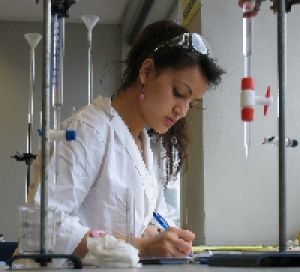Chitosan - effective alternative to growth-promoting antibiotics

For consumer protection and to prevent the development of microbial resistantce to antibiotics, in 2006 the EU prohibited the prophylactic use of growth-promoting antibiotics for ruminants (e.g. sheep or cattle).
These limitations caused increasing procuction costs on farms. Also a higher level of methane emissions ba the animals were noticed. Methane gas is beeing suspected to have negative impacts on the environment. Therefore healthy and cost-effective alternatives to antibiotics were looked for.
Research results are very promising. According to scientists, chitosan turns out to be a reliable, reasonable and viable option. Moreover, chitosan has certain additional advantages: besides the proven antimicrobial activity it is also renewable, biodegradeable and non-toxic.
The trials
The aim of different in vitro and in vivo tests was to prove a positive impact on fermentation processes of ruminants. An improvement of nutritional efficiency was aspired to boost the use of the nutrion for the ruminants.
In all tests the aim was reached in a positive way.
- Adding chitosan to the daily ratio was beneficial to the animals.
- The production of methane was reduced down to 50%.
- Furthermore the energy efficiency from food was enhanced.
Negative consequences on the digestion were not observed. The higher the degree of deacetylation of the added chitosan the better results were obtained.
We hope this study contributes to a general approval of chitosan by regulatory authorities. To the benefit of animals and farmers, we are confident that industries discover the potential of chitosan.
- Further information are available on this site.
- To find out more about chitosans properties and abilities, please visit our news area or on our chitosan page.
Source: Basque Research
- Created on .


